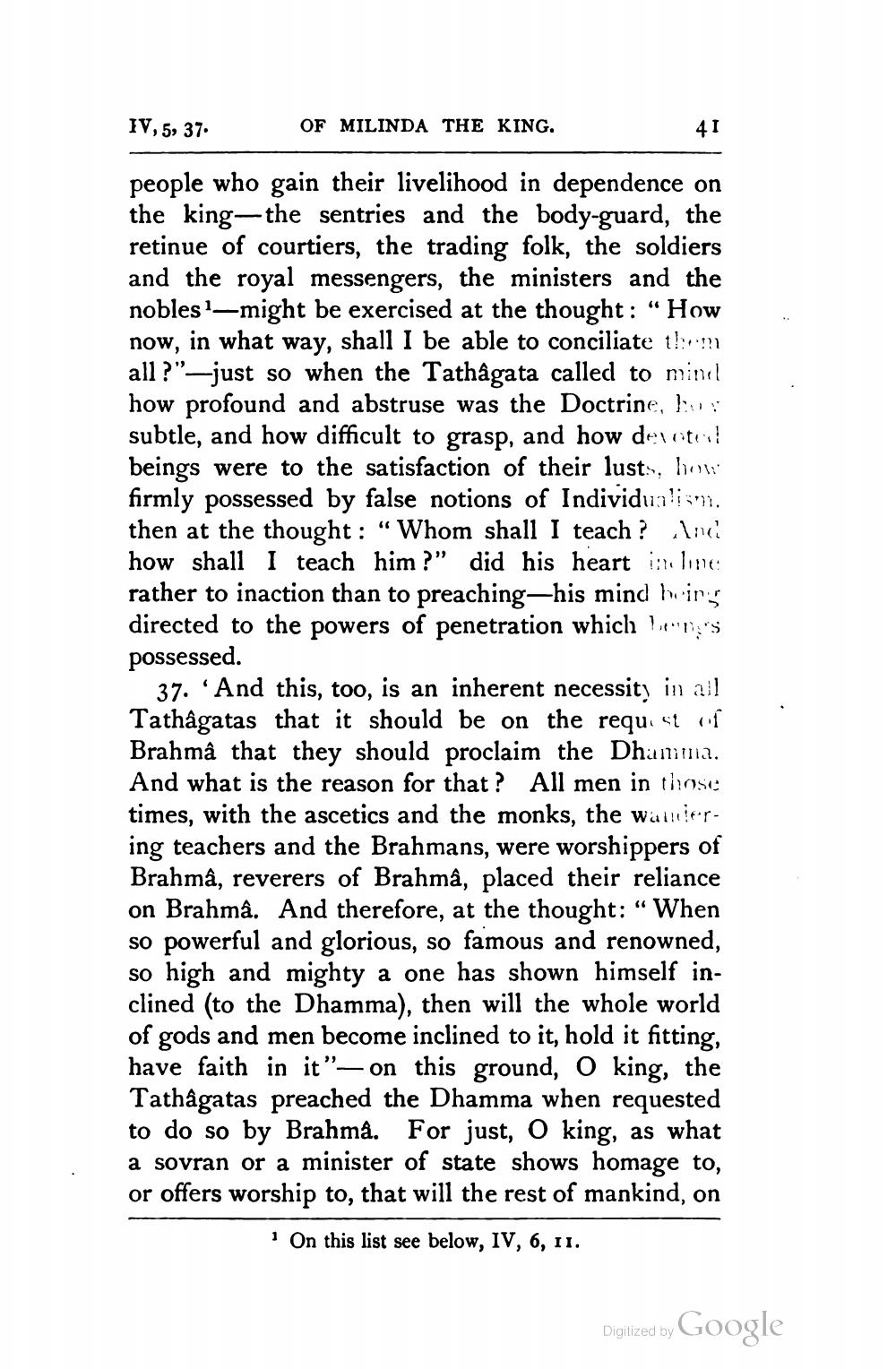________________
IV, 5, 37
OF MILINDA THE KING.
people who gain their livelihood in dependence on the king—the sentries and the body-guard, the retinue of courtiers, the trading folk, the soldiers and the royal messengers, the ministers and the nobles !-might be exercised at the thought : "How now, in what way, shall I be able to conciliate 1!:,:!?) all?"-just so when the Tathagata called to mine! how profound and abstruse was the Doctrine, 1:0 subtle, and how difficult to grasp, and how devoted beings were to the satisfaction of their lusts, bon firmly possessed by false notions of Individualism. then at the thought : "Whom shall I teach ? Inc how shall I teach him?" did his heart alone rather to inaction than to preaching—his mind hairs directed to the powers of penetration which len 's possessed.
37. And this, too, is an inherent necessity in ail Tathagatas that it should be on the requist of Brahmâ that they should proclaim the Dhamma. And what is the reason for that? All men in those times, with the ascetics and the monks, the watering teachers and the Brahmans, were worshippers of Brahmâ, reverers of Brahmâ, placed their reliance on Brahmâ. And therefore, at the thought: “When so powerful and glorious, so famous and renowned, so high and mighty a one has shown himself inclined (to the Dhamma), then will the whole world of gods and men become inclined to it, hold it fitting, have faith in it”— on this ground, O king, the Tathagatas preached the Dhamma when requested to do so by Brahmå. For just, o king, as what a sovran or a minister of state shows homage to, or offers worship to, that will the rest of mankind, on
On this list see below, IV, 6, 11.
Digitized by Google




